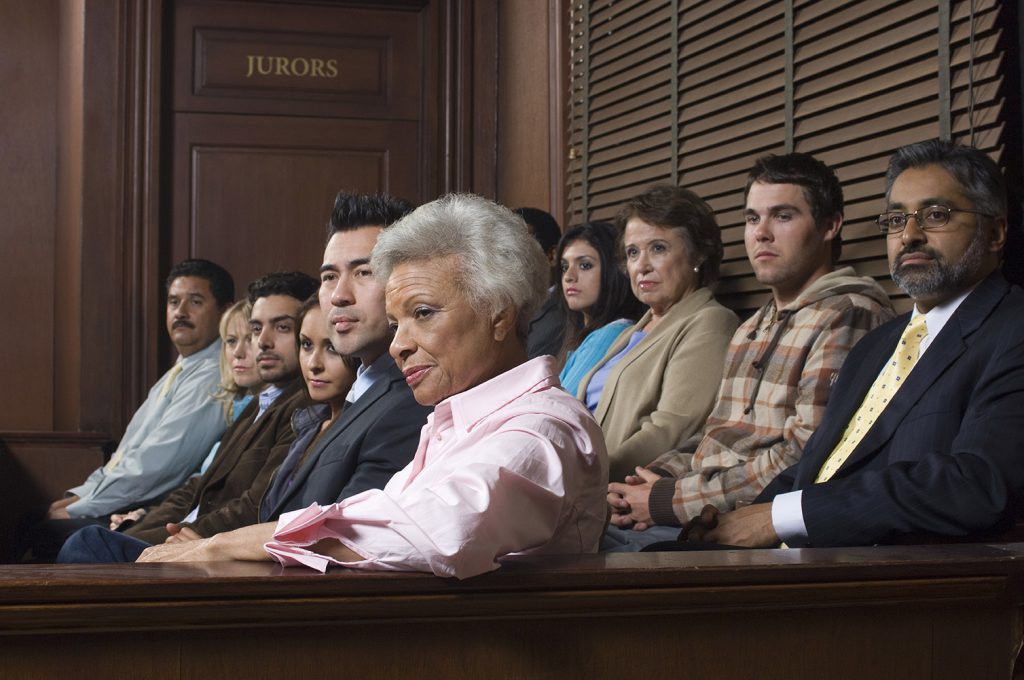
The criminal justice system is a complex web of rights, rules and laws. Not knowing your rights can lead to even more complications, as you could end up in a situation where your rights are being violated without your knowledge. For this reason, it’s a good idea to review the litany of rights granted to you once you’ve been accused of a crime.
Innocence
First thing’s first: you are, in the eyes of the law, innocent until proven guilty. And in order to be found guilty in a court of law, the prosecution must prove “beyond a reasonable doubt” that you are in fact culpable. Technically, even the slightest doubt should preclude you from being convicted of a crime. This means the onus is on the prosecution (representing the government) to prove your guilt. Put another way, the burden is not on you and your lawyer to prove your innocence.
Silence
It’s important to know that the Fifth Amendment guarantees your right to remain silent, meaning you never have to tell the police anything about your activities. If you are forced in any way to give information to the police, your rights have likely been violated. Relatedly, when cops accuse you of a crime and arrest you, you are entitled to know the charges.
Legal Representation
Once you are arrested, you must be given access to legal representation, as this is your right. If you can’t hire your own lawyer, the government must supply you with one. And once you have an attorney, it is a good idea to demand that he or she be present whenever you speak with a prosecutor or detective (or anyone for that matter). Your right to counsel is crystallized in the Constitution under the Sixth Amendment which states that you have the right “to have the assistance of counsel for [your] defense.”
You Have the Body
And if you are being held in detention, it’s important to know that you have the right to request a writ of habeas corpus, a Latin term meaning “that you have the body.” Basically, the government is not legally allowed to hold you in a cell without concrete proof against you. If you believe there is not enough proof and you are being held, you may file a habeas petition, which is essentially a civil suit against the state.
Speedy Trial
After charges have been made against you, you “shall enjoy the right to a speedy and public trial, by an impartial jury of the state and district wherein the crime shall have been committed,” as stated in the Sixth Amendment. Generally speaking, a jury trial is granted to those who have committed a crime entailing (at least) a $500 fine or six months in prison. A jury, comprising your fellow citizens – people living in the area – is supposed to protect against the bias of the state and its various agents.
Every state has its own ruling statute that determines the maximum time spent in detention prior to a trial. In some cases, the limit may be 45 days. Whatever the time limit, if your detention exceeds that duration, you are entitled, by law, to be freed from your cell and to have your charges dropped. However, it is not uncommon for a detainee to waive that right in favor of more time to prepare a strong defense.
Plea Agreements
These aforementioned rights are yours to exercise. But it should be mentioned that the criminal justice system does not always abide these rights. More specifically, a complex system of semi-official procedures has complicated the meaning of these rights in practice. Think for instance of the plea bargain. According to a 2011 report by the DOJ, scholars estimate that 90 to 95 percent of all state and federal cases are settled via plea agreements. In practice, this means that innocent people (often people with a troubled background) end up pleading guilty to a crime they didn’t commit because of a lack of resources to build a solid defense.
For this reason, it’s a good idea (if possible) to work with an attorney who understands not only the law, but the concrete reality of the criminal justice system. Your attorney will be able to guide you through this arduous and stressful process.
